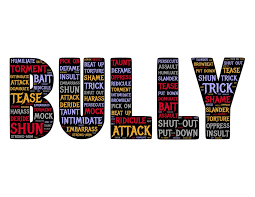Anger
Two Psychological Theories to Know for a More Civil Society
Be mindful of observational learning and frustration-aggression hypothesis.
Posted July 16, 2018

We certainly appear to be living in terribly divisive and stressful times. Civility is hard to come by and it appears that everyone is angry, bitter, and frustrated being apparently free to share their upset with others in person and online. And it seems to be getting worse by the day.
While there are no easy answers to turning this trend around there are several psychological theories that are evidence based and adequately researched to help us better understand this phenomenon. And maybe if we can understand these theories a little bit better then we can be more thoughtful and strategic about our efforts to push back and work toward a more civil society.
First, we need to be mindful of observational learning. The well-known psychologist and Stanford Professor, Al Bandura, conducted numerous pioneering research studies that well demonstrate the power and influence of observing models and then acting as models do. So, when models who are high ranking politicians, Hollywood celebrities, sports stars, news leaders, and others who have the bully pulpit act in an uncivil, crude, demeaning, and hostile manner (and get away with it or are even rewarded for it), then others will feel free to act in a similar manner. Bad behavior is like a virus. If it is not contained, treated, or minimized then it will spread and infect others. Social media helps to spread these problematic behavioral viruses much more easily. So, when you have the interaction of social media with many awful models of terrible behavior to select from you ultimately have a perfect storm to spread the virus of bad behavior that you observe.
Second, we also need to be attentive to the frustration-aggression hypothesis. It suggests that ongoing frustration that is not resolved or settled can ignite into aggression when given an opportunity to do so. For example, this is why road rage incidents are more common in high traffic congested areas than in low traffic locations. Seething frustration can easily turn violent when sparked by a frustrating last straw incident.
There are many reasons why so many people are frustrated now. A rapidly changing society, economic inequality, failed dreams, stressful politics, uncertain futures, fear, and so forth all add to collective stress and frustration. In fact, the American Psychological Association’s annual Stress in America study has demonstrated that Americans are more stressed and worried about things today than in the past decade or so since they started their annual stress survey. Remarkably, Americans are more stressed out now than even during the height of the 2008 economic and housing collapse and recession. So, rising levels of stress and frustration will likely lead to rising levels of aggression that might include a wide variety of bad behaviors such as online trolling, road rage, awful behavior at home and work, shooting incidents, general nastiness and incivility, and so forth.
While there are certainly no simple answers to a more civil and civilized community, we can all do our part to be more mindful of these issues and try to lower the frustration and anger out there as well as model good behavior. It really matters. Being a model for civil, gracious, kind, caring behavior matters and can, in both small and large ways, change our society. And if we treat others just like we wish to be treated things would change pretty quickly and certainly in a positive direction. However, we need everyone to help out. Will you join in?
So, what do you think?
Copyright 2018, Thomas G. Plante, PhD, ABPP


